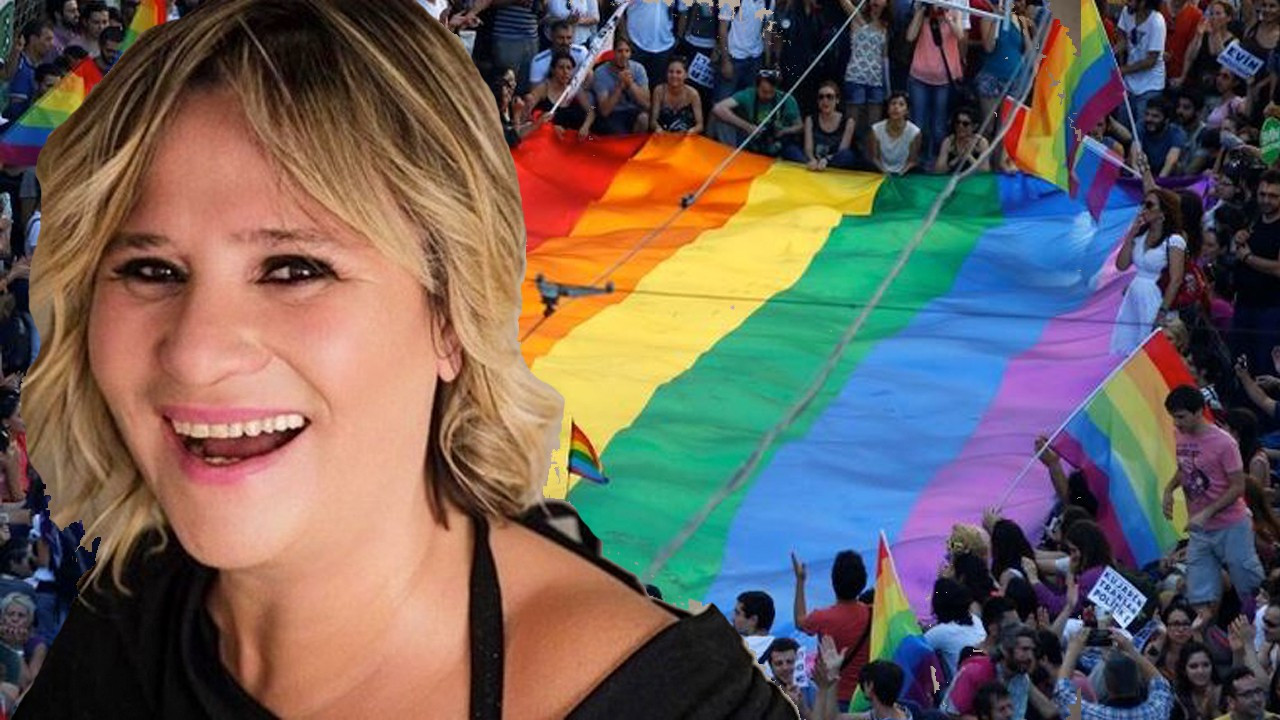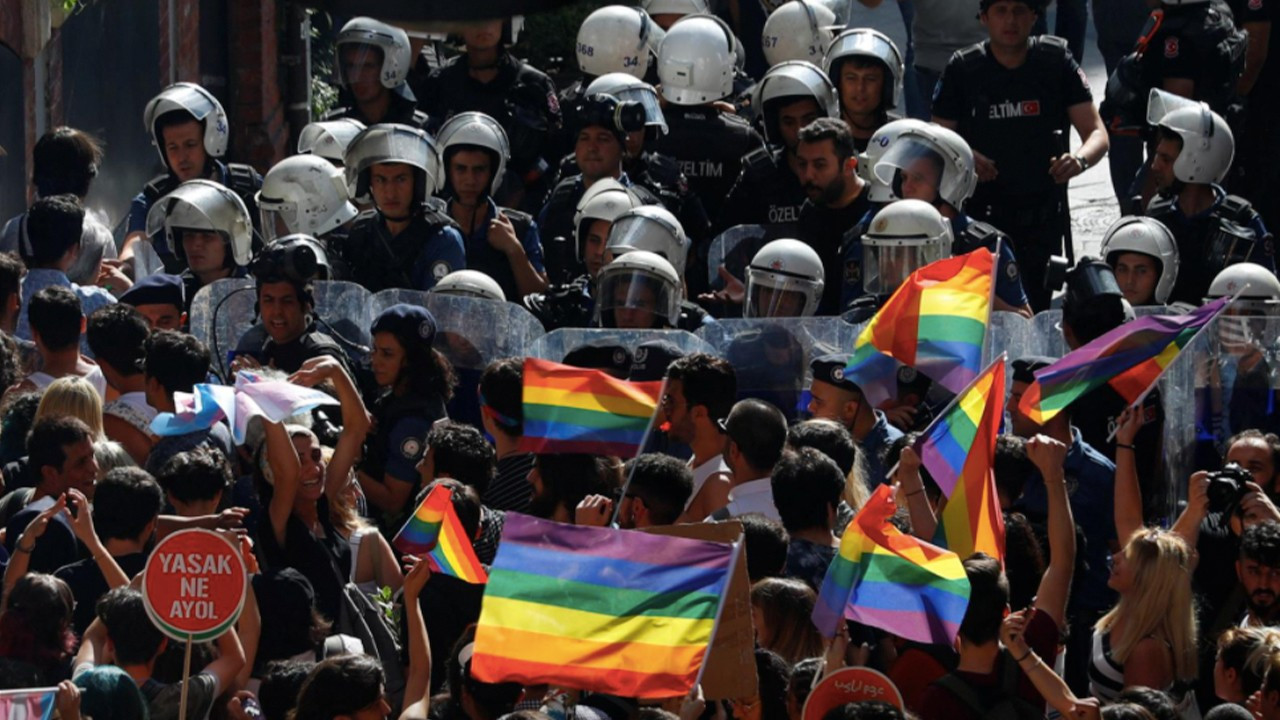It’s Pride Month, and Turkish TV has nothing to be proud of
It is Pride Month, and Turkey has nothing to be proud of when it comes to the treatment of its LGBTQIA+ citizens. The Pride Parade and any related event are banned, the rainbow flag is so criminalized even the regular-old pinkwashing is nowhere to be seen, and there is no LGBTQIA+ representation in television.
As violence against the LGBTQIA+ increases every day, caring about fictional TV characters might seem mundane. It is not—representation matters, especially now. While the whole world spent the last year and a half in their homes, the significance of television as a cultural space has painfully increased. Lack of socialization, diminished resources, and access to safe spaces made the lives of marginalized people even more isolated than before. Television has become the pacifier, the entertainer, and the great equalizer. For some, it is the only place to connect to the outside world, and in that world, they need to see faces like their own.
According to stats from TİAK (TV Audience Research Company), Turks watch an average of 6 hours of broadcast television a day. This number has reached 7,5 hours at the peak of the pandemic, with an increase of %25. Netflix and local streaming services also have a large following: Numbers not confirmed by Netflix put the industry giant at 1,7 million local subscribers. Since 2019, all digital platforms are subject to the supervision of RTÜK (Radio and Television Supreme Council), otherwise known as the country’s top censorship body. And they all comply to a degree, willingly or not.
Netflix, which led the GLAAD Media Awards for LGBTQIA+ representation this year, was at the center of a censorship scandal in Turkey. In July 2020, Mahir Ünal, the deputy chairman of the governing Justice and Development Party (AKP), implied in an interview that a gay character was removed from a Turkish series after bilateral meetings between RTÜK and Netflix. Although reports identified the series as Love 101, the show in question was actually named If Only, another series produced by the same production company for Netflix. Authorities demanded that a gay character be removed from the script, and the production company eventually obliged, but Netflix decided to cancel the show altogether. The show is now being produced for Netflix Spain. The creator of the show Ece Yörenç said in an interview with Variety: “They [Ministry of Culture] hoped we’d change the screenplay, adapting to the moral norms they expected. But I, along with Netflix, didn’t agree to make any changes to the original screenplay, and we finally decided to cancel the series.” Ironically enough, Ay Yapım, the same production company that made If Only, went into adopting Netflix’s French comedy Dix Pour Cent (Call My Agent) for a national network in August 2020. And suffice to say, the lesbian protagonist Andréa Martel was straight as an arrow in the Turkish adaptation.
Summer of 2020 was also when Seyfi Dursunoğlu, aka The Grumpy Virgin, passed away. An iconic drag queen and comedian, Dursunoğlu was an imprint of Turkish television, having created and hosted shows for more than thirty years. Dursunoğlu announced in 2007 that he won’t ever appear as The Grumpy Virgin because of pressures and censorship from RTÜK. It is largely reported that he died of a broken heart, having not performed in his later years. Dursunoğlu’s passing was followed by the removal of another prominent LGBTQIA+ personality from the screens. Fatih Ürek, singer and a longtime TV personality, lost his gig as host of the high-rating show Gelinim Mutfakta (My Daughter in Law is In the Kitchen). His next project was then altogether scrapped after he already shot most of the first season. Ürek said in a live-TV interview in February of 2021; he has been told: “someone from the government did not want him on TV.” In March 2021, Exxen, a local streaming platform, removed an episode of the therapy show Katarsis. The guest was trans actress Çağla Akalın. RTÜK claimed they did not impose any fines for the episode and that Exxen has removed the content on its own.
In other cases, mention of LGBTQIA+ was enough grounds for censorship. During the live broadcast of the 93rd Academy Awards ceremony in the state-owned channel TRT2, Mia Neal’s acceptance speech for Best Makeup was not translated to Turkish when she famously said, “I can picture Black trans women standing up here.”
I can picture LGBTQIA+ characters on Turkish TV, too. I can picture shows with diverse characters and writing rooms, making LGBTQIA+ lives not only visible but represented. I can picture a TV landscape where there are no harmful stereotypes about society’s most vulnerable, but instead where content is helpful to shift the horrible cultural and political landscape that we live in. But for that to happen, producers, broadcasters, and streaming platforms alike should take risks and not succumb to the demands of censors. Now, that is a TV we can be proud of.


 Turkish screenwriter dropped Netflix show over Ankara's protests to gay characterMedia
Turkish screenwriter dropped Netflix show over Ankara's protests to gay characterMedia MHP leader Bahçeli: One cannot identify as man if they approve of LGBTPolitics
MHP leader Bahçeli: One cannot identify as man if they approve of LGBTPolitics